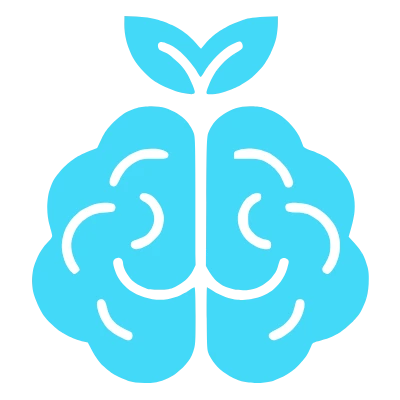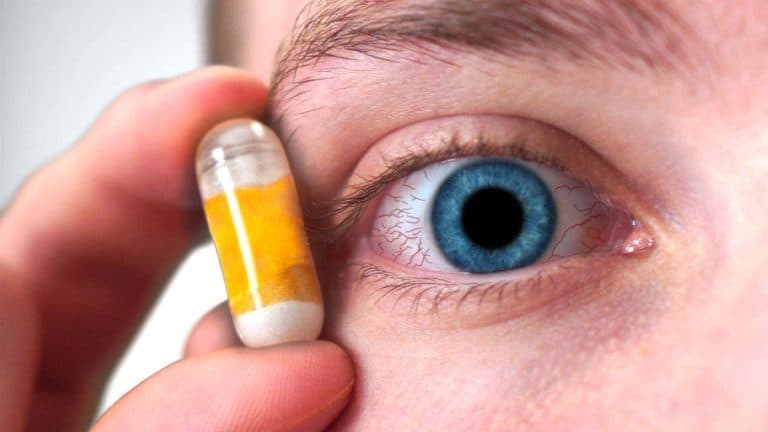Nootropics, also known as “smart drugs” or “cognitive enhancers,” are a class of substances that have been shown to improve brain function.
They have been used for decades by people looking to boost memory, attention, learning, and overall cognitive performance.
But the effects of nootropics don’t stop there, they can also have positive effects on mood and emotional regulation, motivation, and even physical performance. In this blog post, we will explore the various types of nootropics, how they work, and the potential benefits they offer.
We will also discuss the potential risks and side effects, as well as how to use nootropics safely and responsibly.
Whether you’re a student looking to improve your study habits, an entrepreneur looking to boost productivity, or an athlete looking to enhance performance, this guide will provide you with the information you need to make an informed decision about using nootropics.
How Nootropics Work
Nootropics work by targeting specific neurotransmitters and brain regions to enhance cognitive performance.
- Different types of nootropics work in different ways, but they all aim to improve brain function in some way.
- Some nootropics work by increasing the availability of certain neurotransmitters, such as acetylcholine, which is involved in memory and learning.
- Others work by increasing blood flow and oxygen to the brain, which can improve focus and attention.
- Some nootropics also have anti-anxiety and anti-depressant properties, which can help improve mood and emotional regulation.
Here are a few examples of popular nootropics and their mechanisms of action:
- Piracetam: This is one of the oldest and most well-known nootropics. It is thought to work by increasing the availability of the neurotransmitter acetylcholine in the brain, which is involved in memory and learning.
- Aniracetam: This nootropic is similar to piracetam but is more potent and has additional effects on anxiety and depression. It is thought to work by modulating the AMPA receptor, which is involved in the brain’s response to excitatory neurotransmitters.
- Modafinil: This nootropic is commonly used to treat narcolepsy and other sleep disorders, but it also has cognitive-enhancing effects. It is thought to work by increasing the availability of the neurotransmitters dopamine and norepinephrine, which are involved in attention and motivation.
- Phenylpiracetam: This nootropic is a derivative of piracetam and is thought to be more potent. It is believed to work by modulating the AMPA receptor and increasing the availability of the neurotransmitter dopamine.
It’s important to note that while these substances are called nootropics, it’s not fully understood how they work in the brain, and more research is needed to understand their full mechanisms. Additionally, some of these substances may have different effects on different people, so it’s always important to consult with a healthcare professional before taking any new supplement.
Potential Benefits of Nootropics
There are many potential benefits
Improved Cognitive Function
- Nootropics have been shown to improve memory, attention, and learning.
- They may also enhance creativity and problem-solving skills.
Increased Motivation and Productivity
- Nootropics can help to increase energy levels and focus, making it easier to get things done.
- They can also help to combat fatigue and mental fog, allowing for better productivity.
Reduced Anxiety and Stress
- Nootropics can have a calming effect on the brain, helping to reduce feelings of anxiety and stress.
- Some nootropics have been found to have anti-anxiety and anti-depressant properties.
Improved Mood and Emotional Regulation
- Nootropics can help to improve mood and emotional regulation.
- They can help to combat feelings of depression and anxiety, and improve overall well-being.
Increased Neuroplasticity and Neurogenesis
- Nootropics can help to promote neuroplasticity, which is the brain’s ability to change and adapt in response to new information and experiences.
- Some nootropics have been found to promote neurogenesis, which is the process of creating new brain cells.
It’s important to note that while these benefits have been found in some studies, more research is needed to fully understand the potential benefits of nootropics. Additionally, as with any supplement, some people may experience different effects and it’s important to consult with a healthcare professional before taking any new supplement.
Nootropics and Mental Health
Nootropics have been found to have potential benefits for mental health as well. They have been used as an adjunctive treatment for mental health conditions such as ADHD, depression, and PTSD.
- For individuals with ADHD, nootropics can help to improve focus and attention, which can make it easier to complete tasks and stay on task.
- For those with depression, nootropics can help to improve mood and emotional regulation, and can also help to combat feelings of anxiety.
- For individuals with PTSD, nootropics can help to reduce anxiety and stress, and can also help to improve cognitive function, which can aid in the healing process.
However, it’s important to note that while nootropics may have potential benefits for mental health, they should not be used as a replacement for traditional treatments such as psychotherapy or medication. It is important to consult with a healthcare professional before using nootropics as an adjunctive treatment for mental health conditions.
Additionally, it’s important to be aware that some nootropics can have side effects such as insomnia, headaches, and anxiety, so it’s important to start with small doses and pay attention to any side effects that may occur.
As with any supplement, it’s important to use caution and consult with a healthcare professional before starting any new supplement regimen, especially if you have a pre-existing mental health condition.
Nootropics and Athletes
Nootropics have been found to have potential benefits for athletes as well. They can be used to improve physical performance and recovery.
- Nootropics can help to increase focus, attention, and motivation, which can improve performance in sports that require high levels of mental focus, such as golf or tennis.
- Nootropics can also help to improve endurance and reduce fatigue, which can improve performance in sports that require prolonged physical activity, such as long-distance running or cycling.
- Nootropics can also help to improve recovery after intense physical activity by reducing inflammation and oxidative stress.
However, it’s important to note that while nootropics may have potential benefits for athletes, they should not be used as a replacement for proper nutrition, hydration, and rest. Additionally, some nootropics may be on the World Anti-Doping Agency’s (WADA) prohibited list and use of these substances may lead to sanctions.
It’s important to consult with a healthcare professional and check with the appropriate governing bodies before using any nootropics for athletic performance. As with any supplement, it’s important to use caution and start with small doses to assess any potential side effects.
How to Use Nootropics Safely
While nootropics have been found to have potential benefits, it’s important to use caution and follow safe practices when using them.
- Consult with a healthcare professional: Before starting any new supplement regimen, it’s important to consult with a healthcare professional to ensure that the nootropic is safe for you to use and that it won’t interact with any medications you’re currently taking.
- Start with small doses: It’s important to start with small doses to assess any potential side effects and to give your body time to adjust to the supplement.
- Monitor for side effects: Some nootropics can have side effects such as insomnia, headaches, and anxiety, so it’s important to pay attention to any side effects that may occur and to adjust the dosage accordingly.
- Follow the recommended dosage: It’s important to follow the recommended dosage on the label or as advised by a healthcare professional. Overdosing on nootropics can lead to serious side effects and should be avoided.
- Avoid prolonged use: It’s important to avoid prolonged use of nootropics as the long-term effects of prolonged use are not fully understood.
- Be aware of the legal status: Some nootropics are classified as controlled substances and their possession and use may be illegal in certain jurisdictions. Be aware of the laws and regulations of your country, state or province regarding these substances before using them.
- Be aware of the WADA banned list: If you’re an athlete, be aware of the World Anti-Doping Agency’s (WADA) prohibited list, as some nootropics may be on the list and use of these substances may lead to sanctions.
By following these guidelines and consulting with a healthcare professional, you can use nootropics safely and responsibly to potentially reap the benefits they offer.
Conclusion
Nootropics, have been found to have potential benefits for cognitive function, motivation, mood, and even physical performance. They work by targeting specific neurotransmitters and brain regions to enhance cognitive performance.
However, it’s important to use caution when using nootropics and to always consult with a healthcare professional before starting any new supplement regimen. Additionally, it’s important to be aware of the legal status and the WADA banned list if you’re an athlete.
Personally, I believe that nootropics have a lot of potential to improve cognitive function, mood, and physical performance. However, more research is needed to fully understand the long-term effects of nootropics.
Additionally, I think that it’s important to use nootropics responsibly and to always consult with a healthcare professional before taking any new supplement. With that being said, I think that nootropics can be a valuable tool when used correctly, and can help to improve brain function, motivation, and overall well-being.






